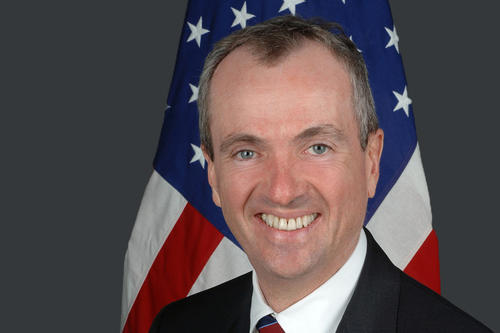The Kennedy Legacy
Philip D. Murphy is the Ambassador of the United States of America in the Federal Republic of Germany.
Image Credit: Bo
President Kennedy spent only three days in Germany in June 1963, and only nine hours in Berlin, but what a legacy he left in that short time. President Kennedy’s words – “Ich bin ein Berliner” – became the sound bite of the Cold War, and Berlin became an enduring symbol of how to meet the challenges that freedom faces.
In the glow of hindsight it is easy to forget that it was a contentious trip. Some of Kennedy’s advisors argued against it, insisting that a stop in Berlin would be an unnecessary provocation to the governments of the GDR and the Soviet Union; they counseled him that if he did go, he should be very cautious in his choice of words.
The President, for his part, was also concerned about what he should say and how he should say it – but for very different reasons. He wanted the people of Berlin to know that America understood what they were going through. The famous phrase “Ich bin ein Berliner” was not a long-planned part of that strategy. It was hand-written on a cue card. He practiced the phrase with an interpreter in Mayor Willi Brandt’s office just before he went out on to the balcony of the Schöneberg Rathaus to deliver his remarks. He felt compelled to make this statement in German to his German audience because he had been so moved and saddened by what he saw when he saw the Wall – both the misery and the hope in the people he encountered.
The speech that President Kennedy gave later that day at the Freie Universität was more policy-oriented. Although it, too, was directed to the citizens of Berlin, it was also addressed to the citizens of the world. In his inaugural address, he famously called upon his fellow Americans to ask what they could do for their country. In that speech, he also called upon citizens of the world to ask what together we could all do for the freedom of man. When he spoke to the students and faculty of this university, a university that as he said was “founded by citizens of the world,” he spoke to the free men and women who understood “the difficult, sensitive tasks that lay ahead,” the free men and women who were willing “to commit their energies to the advancement of a free society.”
Both the Kennedy inauguration and JFK’s Berlin visit were defining moments for Americans and for many other citizens of the world, especially in this country. Five decades later, we still want to answer his call to explore new frontiers and to advance the cause of freedom. We honor him not just for his achievements but also for the ideas he set in motion and the ideals he advocated. The speeches that President John F. Kennedy, however, gave in Berlin on that June day rang with a unique sense of hope and confidence. He drew upon the themes for which he is most famous: how young and old alike must give of themselves for their fellow citizens; how each one of us can and should make a difference. More importantly, he greeted Berliners personally and directly, making each feel like a valued partner in the dramatic world events going on around them – which, of course, they were. That is why President Kennedy’s nine-hour visit remains stamped on our collective memories.
Today we can analyze the many historical and geopolitical reasons the Wall finally fell, but what it comes right down to is this: the Wall eventually fell because enough people believed that it must. Getting to that point was the work of many people, but there is no question in my mind that President John F. Kennedy’s message from the heart to the people of Berlin was a defining moment in the proud march of freedom and democracy.
By Philip D. Murphy
The author is the Ambassador of the United States of America in the Federal Republic of Germany.

